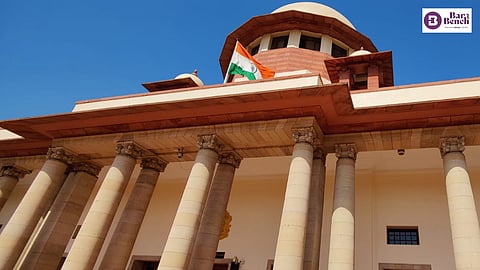
- News
- Columns
- Interviews
- Law Firms
- Apprentice Lawyer
- Legal Jobs
- हिंदी
- ಕನ್ನಡ

The Supreme Court is slated to hear a public interest litigation (PIL) petition seeking the quashing of a June 2022 Bihar government notification that had called for a caste census in the State.